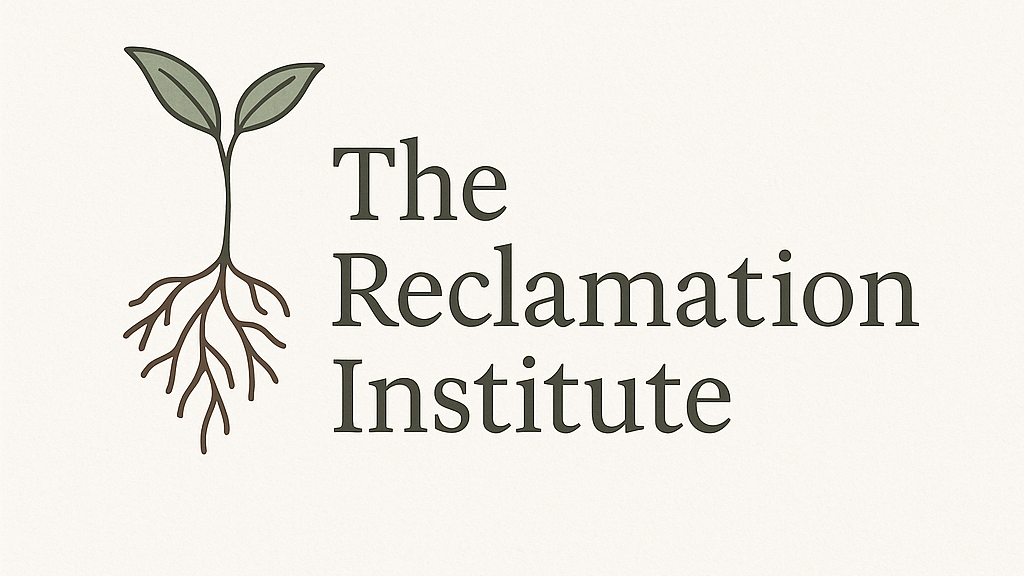The Reclamation Institute
What is it?
The Reclamation Institute is an educational and healing initiative that creates trauma-informed spaces for individuals, communities, and professionals. It is not a clinic, not a church, not a self-help trend. It is a place where lived experience and evidence-based practice meet.
Why “Reclamation”?
Trauma takes away safety, voice, belonging, and worth. Reclamation is the process of taking them back.
Reclamation is not about becoming someone new. It is about returning to what was always yours:
Safety in your body
Belonging in your whole self
Identity without apology
Worth without conditions
These are not privileges to be earned or virtues to be lost.
They are birthrights, waiting to be reclaimed.
What the Institute Offers
The work of the Reclamation Institute lives at the intersections of education, practice, and community:
Reclamation Circles — small group spaces for marginalized communities, individuals navigating complex trauma, and anyone who has felt or is experiencing a sense of “otherness.”
Scaffolding Training for Allies & Advocates — practical, trauma-informed tools for parents, partners, friends, faith leaders, and teachers to offer tangible support that preserves agency and limits “rescuing.”
Clinical & Academic Training — workshops and lectures to equip current and future mental health clinicians and healthcare providers with a trauma-informed approach to care.
The Approach
The Reclamation Institute is rooted in nervous system literacy and a trauma-informed approach to learning. It honors survival responses as creative adaptations, not pathologies. It values story, metaphor, and embodiment as much as it values science.
The work is:
Collaborative — healing and learning happen together.
Ongoing — reclamation is not a one-time event but a daily practice.
Embodied — the nervous system and the body are always part of the story.
The Bigger Vision
I created the Reclamation Institute to bridge across worlds — clinical, academic, and community. It exists for those navigating trauma, for the helpers who walk beside them, and for the institutions shaping how care and belonging are offered.
My vision is a culture where nervous system literacy is as common as basic health literacy, where trauma-informed practice is the default, and where every person knows their safety and worth are non-negotiable.

